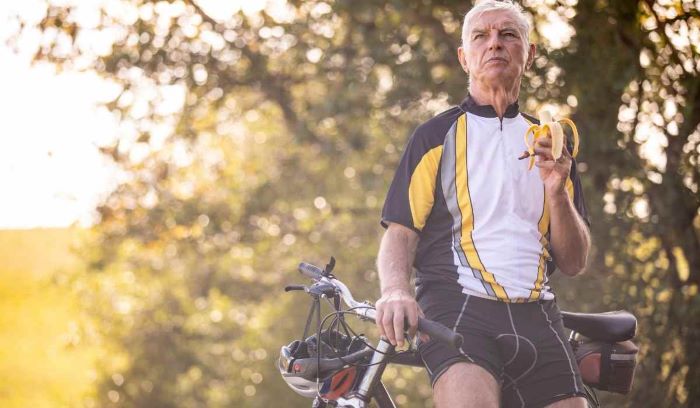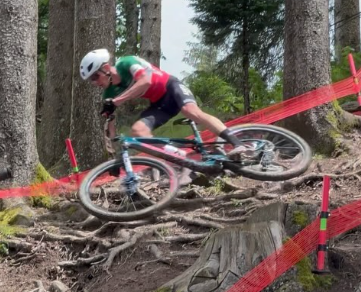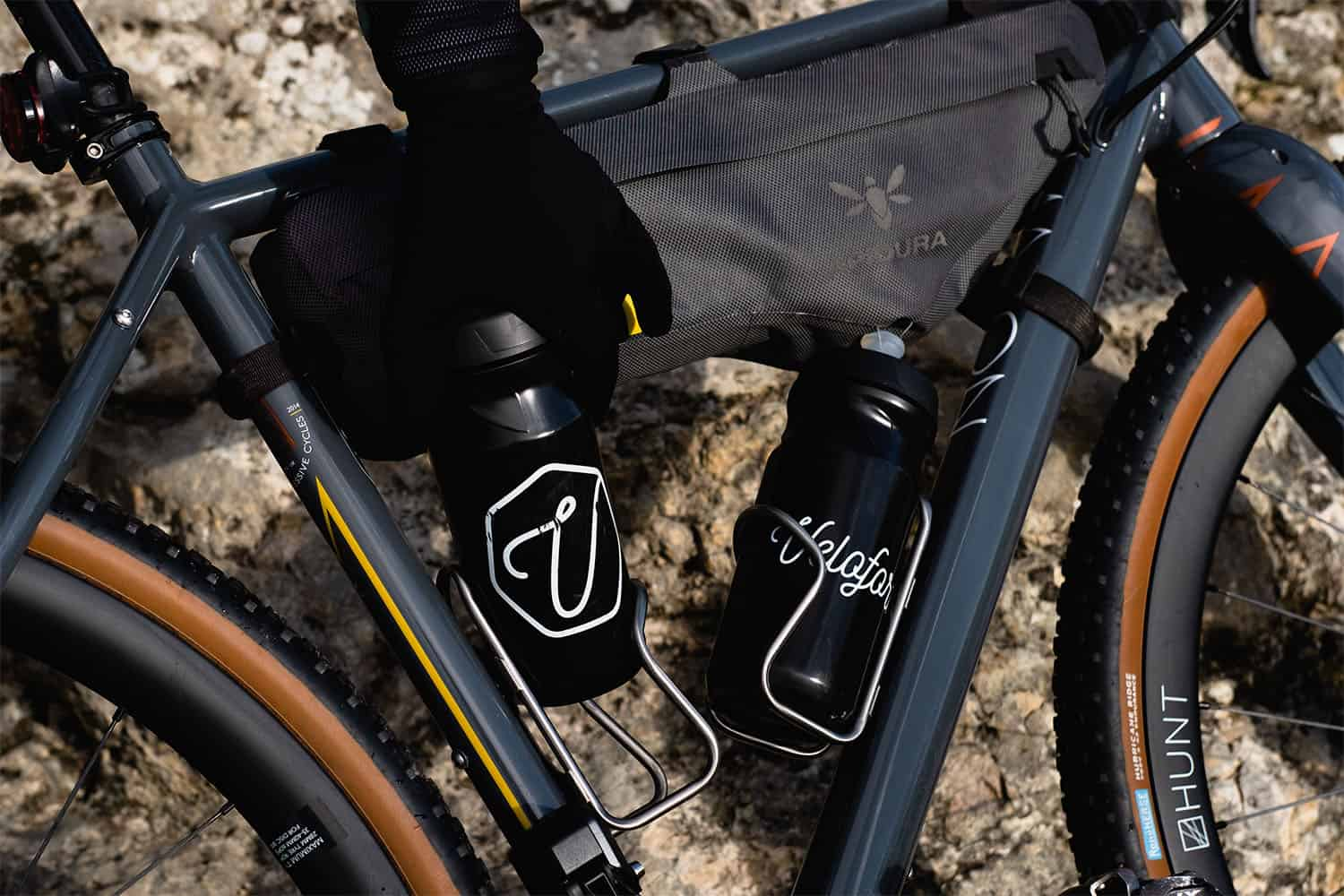It is generally accepted that eating the right type and quantity of food helps riders. Some of those things are endurance and energy. You might wonder, “what foods do I have to eat before cycling a long distance?” Don’t worry because we have all the solutions for you below.
A long-distance ride requires energy generation at a relatively modest pace, and most of this energy comes from carbohydrates and fat, with a minor contribution from protein.
Among the primary fuels for working muscles, carbohydrate is glycogen, stored in both the muscles and the liver. On a long-distance ride, it might not be easy to maintain energy levels if you do not ingest carbohydrate before the ride and replenish it throughout the trip and at the end of each multi-day ride.
Stay tuned until the end to learn all the details you need to know.
Table of Contents
What should I eat before a long bike ride?

The longer you bike, the more important nutrition becomes in terms of your overall performance. Getting this wrong — eating too little or too much – may result in a loss of physical and mental power as well as feeling bloated and sick while riding your bike.
When you exercise, carbohydrate is the primary source of energy for your muscles, not protein or fat. The simple sugar glucose is absorbed after digestion and stored in the liver and muscles as glycogen. Carbohydrate-rich meals and beverages such as bread, fruit, energy bars, and sports drinks are examples of foods and beverages containing many carbohydrates.
When you exercise, glycogen in your muscles is broken down into glucose, which provides energy to your working muscles. The body can store enough glycogen to provide energy for around 90 minutes of moderate-intensity activity.
The consumption of carbohydrates throughout your ride will be necessary if you are planning a ride that will last longer than 90 minutes or if your ride will contain high-intensity hill climbing. The use of carbohydrates during continuous exercise (for more than one hour) has been demonstrated in several studies to enhance performance.
According to the Dietitians of Canada, the Academy of Nutrition and Dietetics, and the American College of Sports Medicine, 30 to 60 grammes of carbohydrate per hour of activity lasting one to 2.5 hours is recommended, and up to 90 grammes per hour for prolonged bouts of exercise is recommended.
On-the-go snacks should consist mainly of easily digested carbohydrates and are low in protein and fat, which are nutrients that inhibit digestion. They should also be conveniently transportable, quickly accessible, and ones that you enjoy eating (so that you will consume the food).
If you want, you can check out later our relative guide about what you should carry while Mountain Biking.
Regarding fast-acting carbs, a few of the best options include raisins, dates, fig bars, cereal bars, energy bars (but not protein bars), energy gels and chews, and sports beverages. Pack more snacks than you think you’ll need if you don’t feel like eating one type or if you lose some snacks by accident while travelling.
What should you NOT eat before cycling?
There are some foods that you have to avoid before cycling for many reasons. A fundamental reason is that some foods offer low carbohydrates, which means that if you eat them, you will not get the same nutrition benefits as eating a banana, for example.
1. Corn flakes
It may seem strange even to consider not eating porridge before going for a ride. Still, cornflakes are a typical breakfast choice that may not appear too awful on the surface but are rather harmful.
Further investigation reveals that its high GI rating indicates that you will be burning off the carbs much too soon in a ride, as opposed to a whole grain breakfast that would slowly release energy throughout the ride.
2. Salad
You might be wondering, what could be wrong with a salad? You’d be right. Whenever someone sees the green leaves, they automatically believe it is a delicious side dish to accompany a meal or an excellent pick on its own. While this is true in the context of a well-balanced diet, it does not satisfy the needs of a pre-ride lunch because of its low carbohydrate content, which will make you weary early on.
3. Fizzy drinks
Even though the excessive quantities of sugar found in fizzy drinks are widely recognized and denounced, the image of a professional cyclist sipping on a can of fizz after a race may lead you to believe that they are the perfect tonic for a cyclist. Although it provides an instant sugar rush, the benefits wear off rapidly and might cause unpleasant side effects that can interfere with your cycling rhythm.
Are eggs good before cycling?
Yes, eggs may be a healthy pre-cycling food when consumed with a carbohydrate 2-4 hours before you go on your bike and ride. One big egg has 70 calories, 6 grammes of protein, 0 grammes of carbs, and 13 vitamins and minerals that are considered necessary. The energy your muscles require comes from carbohydrates. Therefore if you prefer to have eggs before a ride, be sure to add a source of carbohydrates such as toast or fruit to maximize your performance on the bike.
Should I cycle on an empty stomach?
There isn’t anything like it. Energy is expended on cycling rather than digesting, resulting in a reduction in body weight. So go ahead and engage in this beneficial activity. Cycling on an empty stomach will only make your body feel weak since it lacks the energy it needs to conduct any physical exercise.
In general, if you want to lose weight faster, you can try cycling with an empty stomach to “see” the experience, but it is up to you if you want to try. Also, an article from “We love cycling” explains the benefits of cycling with an empty stomach if you’re going to learn more on this topic.
Instead of cycling with an empty stomach, you can eat something light to get some energy because cycling requires energy and strength.
What foods are good for cycling endurance?
Below there are some of the most beneficial foods that you should try in order to improve your cycling endurance and also to boost your energy.
1. Bananas
Bananas are a favourite of most endurance athletes and for a good reason. Potassium and complex carbs are abundant, providing sustenance for the long hours spent pedalling. With up to 30 grammes of carbohydrates and 400 milli-grammes of potassium in a single large banana, this yellow fruit is considered a superfood for cyclists. Furthermore, it is an environmentally beneficial solution because it eliminates the need for plastic baggies or reusable containers.
2. Nuts and Seeds
Almonds, chia seeds, and pistachios are some of the best nuts to eat. Oh, my goodness! With these little energy boosters, the possibilities are virtually limitless. The protein, vitamins, and antioxidants in this recipe help to keep you fueled for the long trip ahead of you despite the reduced carb count. Using nuts and seeds, you may make a trail mix and include them in granola or energy bars.
3. Dried Fruits
Several studies have demonstrated eating some dried fruits, such as raisins and dates, can significantly increase endurance-related performance. They are abundant in potassium, carbohydrates, and sugar, which can help you ride for extended periods by boosting your stamina.
In addition, raisins have less fibre than other dried fruit alternatives, such as figs, peaches, and pears. The unpleasant side effects of fibre-rich diets will not become an issue while cycling, ensuring that you remain healthy.
4. Electrolyte-Infused Water
When it comes to the proper operation of our bodies, electrolytes play a critical part in everything from the regulation of nerve and muscle function to hydration. Calcium, sodium, potassium, phosphate, chlorine, and magnesium are the electrolytes that make up the body. A large number of these vital minerals are lost through sweat.
While athletes require an electrolyte-infused drink, many sports drinks contain too much sugar and artificial colourings for their taste and are not recommended. Making electrolyte drinks home with a bit of honey, salt, lemon, and water is an excellent alternative to buying them at the store. It’s that simple and will keep you hydrated on those long, sweaty rides you like.
Recently, we have also written an article on how much water you should drink when Mountain biking if you want to check this out.
Conclusion
Summing up, we have just mentioned some of the most important foods you have to consider eating before cycling long distances with your bike. Also, we have mentioned some foods you should avoid in order to keep yourself in good condition. Overall, a good diet leads to good endurance and boosts your energy. If you enjoyed this blog post, please share it with your friends on Social Media, and if you have any questions, do not hesitate to send us an e-mail. We are more than happy to help you with the appropriate solutions.

Daniel, a mountain biking expert with a Master’s degree in Sports Science, has over 10 years of experience navigating the toughest trails. With a passion for sustainable riding, he shares expert tips and gear advice on mountainbikerz.com. Join his 145K followers on Instagram.

